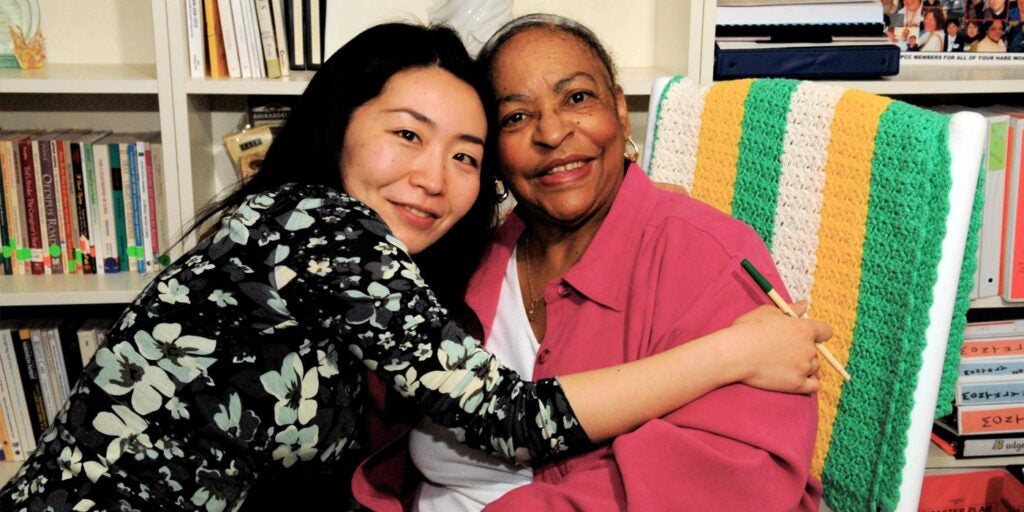

“This work is personal for me. When I go to the airport, it’s hard not to see my family’s journey unfold in front of me. When I see refugees standing there with their light luggage, I know it’s the very beginning, and the sky is the limit. In some ways, I really worry about them, and in other ways, I am excited for them because I know they are going to make it because we did.”
Toc, the Program Director of Catholic Charities Oregon, was born in a refugee camp in Thailand. Although Toc now gets to serve those like her family, life was not especially easy for her and her family. “When I was younger, I was so embarrassed. In school, they would ask what our parents did. I dreaded career day. You know how embarrassing it is in class to say that your parents don’t speak English, don’t know how to read or write, and they clean up after people? So I lied! I said they cater!”
After her father passed away, Toc became increasingly reflective about her Laotian cultural roots and the sacrifices her parents made for her. “I don’t know how my parents did it. I really don’t know how they did it. I don’t care about how many fancy degrees I have or what fancy title I hold, it will never amount to what they went through. They didn’t speak English. They cleaned toilets, proudly. They raised six kids, three boys, three girls. The three girls went to college, the three boys went in and out of prison. When people say that’s unsuccessful, I say, ‘No, that’s pretty darn successful.'”
Although she is aware that life will be challenging for incoming refugees, especially for the parents, she still remains hopeful for the children. “I came to this country at a really, really young age, four, and so when I look at the children in the cultural orientation classes, I’m like dang. I just see success in them. They are going to surpass what I’m doing. I can’t wait!”
As part of her job as program director, Toc had to tell an audience of 1,200 Catholic Charities benefactors about her story, her department, and her hopes-within the first few months of getting the position.
“What I remember most about that night was after I spoke. There were three people waiting to speak to me who could barely speak English. They were waiters. They came up and said, ‘We are not sure if you noticed, but the whole room was silent. As waiters, we have to continue picking up plates. We stopped picking up plates because you were sharing our story.’ They were waiters. They cleaned up after people. Who speaks for these people?”
Toc works day in and day out to give those people a voice.








